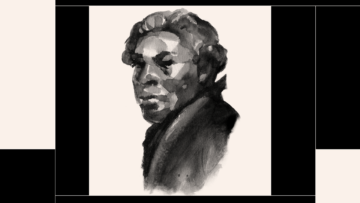Danielle Allen in The Atlantic:
 Massachusetts abolished enslavement before the Treaty of Paris brought an end to the American Revolution, in 1783. The state constitution, adopted in 1780 and drafted by John Adams, follows the Declaration of Independence in proclaiming that all “men are born free and equal.” In this statement Adams followed not only the Declaration but also a 1764 pamphlet by the Boston lawyer James Otis, who theorized about and popularized the familiar idea of “no taxation without representation” and also unequivocally asserted human equality. “The Colonists,” he wrote, “are by the law of nature free born, as indeed all men are, white or black.” In 1783, on the basis of the “free and equal” clause in the 1780 Massachusetts Constitution, the state’s chief justice, William Cushing, ruled enslavement unconstitutional in a case that one Quock Walker had brought against his enslaver, Nathaniel Jennison.
Massachusetts abolished enslavement before the Treaty of Paris brought an end to the American Revolution, in 1783. The state constitution, adopted in 1780 and drafted by John Adams, follows the Declaration of Independence in proclaiming that all “men are born free and equal.” In this statement Adams followed not only the Declaration but also a 1764 pamphlet by the Boston lawyer James Otis, who theorized about and popularized the familiar idea of “no taxation without representation” and also unequivocally asserted human equality. “The Colonists,” he wrote, “are by the law of nature free born, as indeed all men are, white or black.” In 1783, on the basis of the “free and equal” clause in the 1780 Massachusetts Constitution, the state’s chief justice, William Cushing, ruled enslavement unconstitutional in a case that one Quock Walker had brought against his enslaver, Nathaniel Jennison.
Many of us who live in Massachusetts know the basic outlines of this story and the early role the state played in standing against enslavement. But told in this traditional way, the story leaves out another transformative figure: Prince Hall, a free African American and a contemporary of John Adams. From his formal acquisition of freedom, in 1770, until his death, in 1807, Hall helped forge an activist Black community in Boston while elevating the cause of abolition to new prominence. Hall was the first American to publicly use the language of the Declaration of Independence for a political purpose other than justifying war against Britain. In January 1777, just six months after the promulgation of the Declaration and nearly three years before Adams drafted the state constitution, Hall submitted a petition to the Massachusetts legislature (or General Court, as it is styled) requesting emancipation, invoking the resonant phrases and founding truths of the Declaration itself.
Here is what he wrote (I’ve put the echoes of the Declaration of Independence in italics):
The petition of A Great Number of Blackes detained in a State of Slavery in the Bowels of a free & christian Country Humbly shuwith that your Petitioners Apprehend that Thay have in Common with all other men a Natural and Unaliable Right to that freedom which the Grat — Parent of the Unavese hath Bestowed equalley on all menkind and which they have Never forfuted by Any Compact or Agreement whatever — but thay wher Unjustly Dragged by the hand of cruel Power from their Derest frinds and sum of them Even torn from the Embraces of their tender Parents — from A popolous Plasant And plentiful cuntry And in Violation of Laws of Nature and off Nations And in defiance of all the tender feelings of humanity Brough hear Either to Be sold Like Beast of Burthen & Like them Condemnd to Slavery for Life.
In this passage, Hall invokes the core concepts of social-contract theory, which grounded the American Revolution, to argue for an extension of the claim to equal rights to those who were enslaved. He acknowledged and adopted the intellectual framework of the new political arrangements, but also pointedly called out the original sin of enslavement itself.
More here. (Throughout February, at least one post will be dedicated to honoring Black History Month. The theme this year is: The Family)
